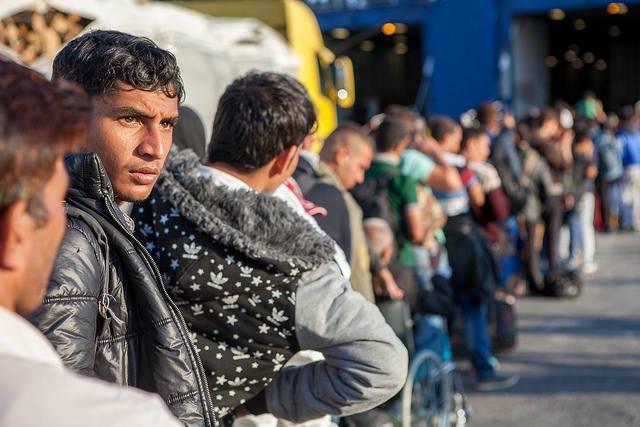
The plight of displaced people, especially Syrian refugees, has been largely ignored by the mass media since this human rights tragedy dominated news headlines during the fall of 2015. Yet this ongoing human rights debacle will not go away anytime soon, and governments, the private sector and NGOs need to find ways to cooperate and strive to do what they can so organizations can transform this crises into opportunities.
That time must happen soon, as yet another study of refugees arrived at a dire conclusion: by the end of the century, the number of asylum seekers to Europe could skyrocket to more than three times the current number of people who currently seek a new or temporary home. And the key trigger, these researchers concluded, is climate change.
Two researchers at Columbia University examined weather variations in 103 countries between 2000 and 2014. They found that temperatures with a large deviation from historical averages correlated with a spike in asylum applications to European Union countries. Depending on the rate at which global temperatures rise this century, EU member states could see asylum applications increase by 28 percent by 2100 – or experience as much as a 118 percent surge in climate change refugees under more extreme scenarios.
At first, the possibility that the global refugee crisis could be exacerbated comes across as the purview of national governments and international organizations such as the United Nations. And it is obvious something has to be done, as less than 0.3 percent of people displaced worldwide were successfully resettled last year.
But this is a problem that the global business community also needs to address, and not just in the name of “doing good.” Taking the lead on refugee assistance and resettlement, in fact, also can create pragmatic business opportunities for companies in the long run.
“Becoming involved early in the process of assessment, education, and integration planning would allow the private sector to help shape policy from the outset, rather than complaining about the government’s failures after the fact,” wrote Lucy Marcus for the Guardian during the height of the refugee crisis in September 2015.
Marcus pointed out that refugees, many of whom are educated or have skills making them ready for employment, are a bulwark against Europe’s aging population and low birth rates. Whether they open small businesses in what had been neighborhoods on the decline, or launch startups that drive innovation, they offer these societies a crucial economic shot in the arm.
Some companies are already aggressively doing what they can to employ and resettle refugees. In upstate New York, Chobani has hired refugees in its yogurt processing plant. Airbnb is continuing to offer refugees housing. And a program in Germany says it has helped 2,500 refugees find jobs across 300 companies. These efforts, however, are a drop in the bucket compared to the scale needed to integrate refugees into local economies.
In addition to serving as an example of how to welcome and integrate refugees, businesses can develop new markets in countries that may seem hopeless now, but in the long term can foster economic opportunities. And the truth is that most refugees want to return to their homeland, wherever that may be: it is their home, their culture and where their native tongue is spoken. Even if they do not return to their native countries permanently, they will often become part of migrant networks, or what The Economist has called the "magic of diasporas," growing businesses at home and abroad.
The fact that the plight of many refugees is increasingly linked to climate change – usually because weather shocks can wreak havoc on agriculture, and as some researchers have suggested, even spark armed conflict – gives businesses additional incentive to do what they can to help society shift toward a low-carbon economy. More stable economies abroad mean future overseas markets – and sustained growth, not to mention brand loyalty for companies.
Image credit: CAFOD/Flickr

Leon Kaye has written for 3p since 2010 and become executive editor in 2018. His previous work includes writing for the Guardian as well as other online and print publications. In addition, he's worked in sales executive roles within technology and financial research companies, as well as for a public relations firm, for which he consulted with one of the globe’s leading sustainability initiatives. Currently living in Central California, he’s traveled to 70-plus countries and has lived and worked in South Korea, the United Arab Emirates and Uruguay.
Leon’s an alum of Fresno State, the University of Maryland, Baltimore County and the University of Southern California's Marshall Business School. He enjoys traveling abroad as well as exploring California’s Central Coast and the Sierra Nevadas.














